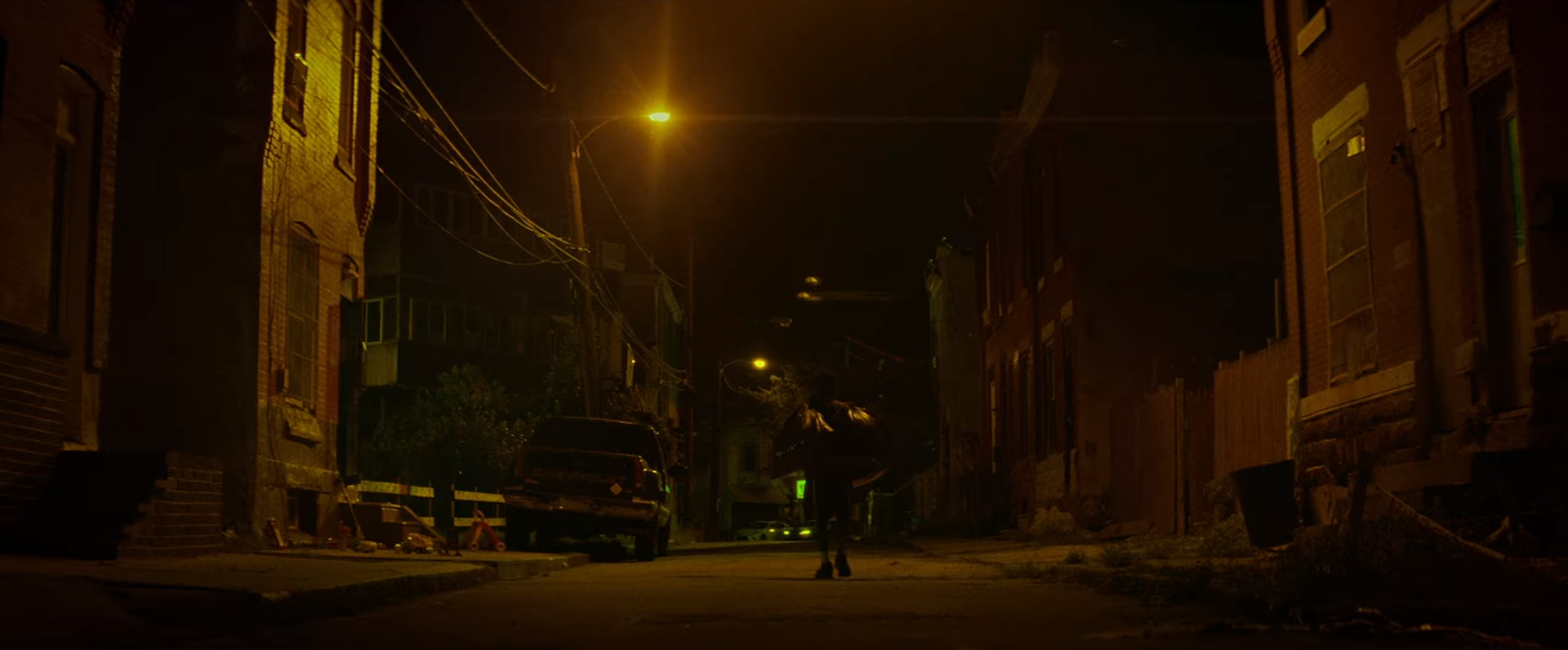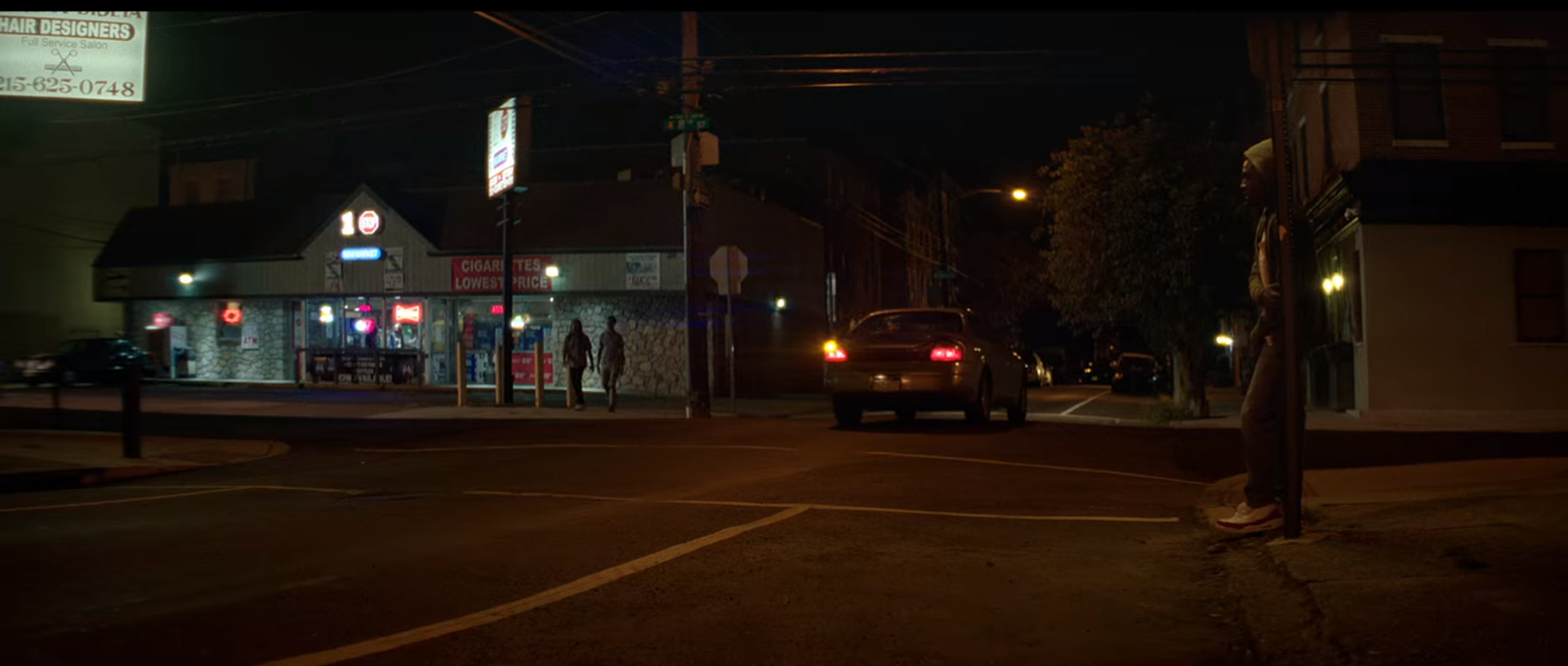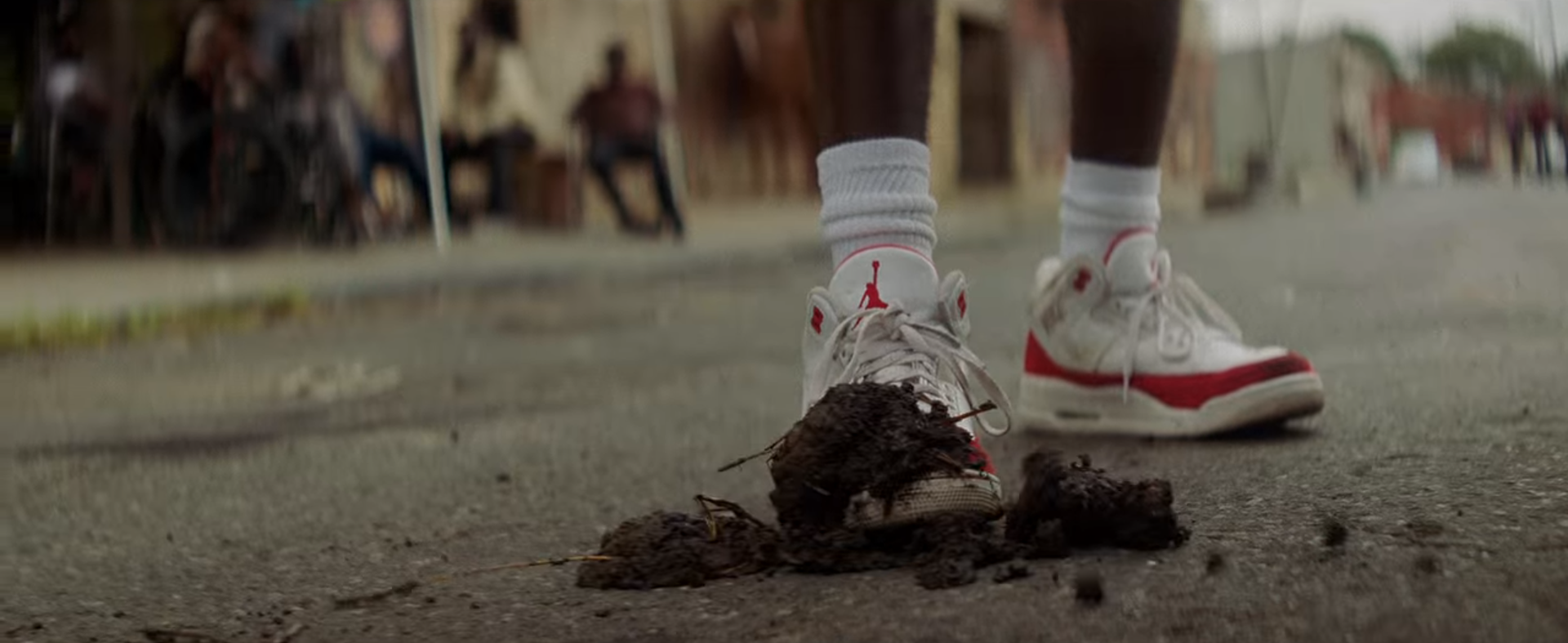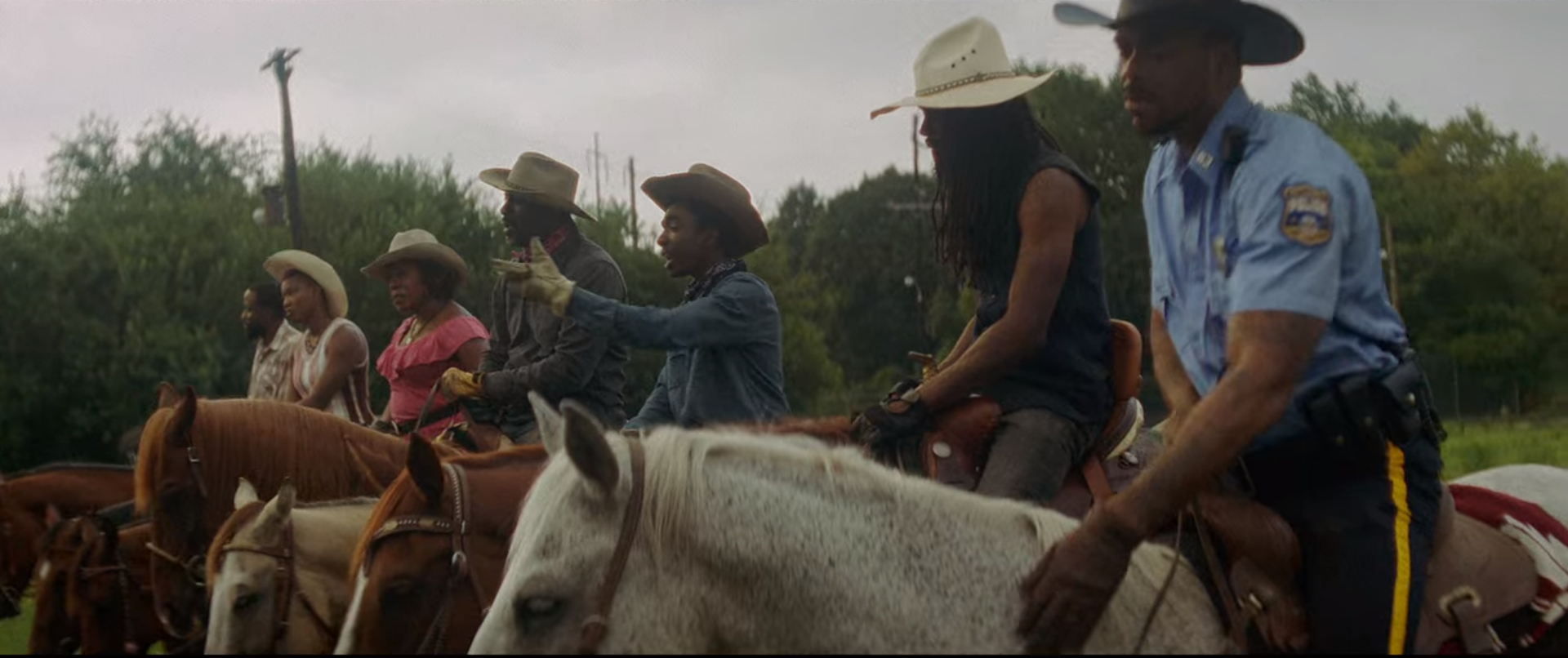Ricky Staub’s Concrete Cowboy, based on Greg Neri’s novel “Ghetto Cowboy”, tells the story of a young teenager forced to adapt to a new lifestyle. In the first scene, we can see how the 15-year-old boy, Cole (Caleb McLaughlin) has relocated to Philadelphia, where his father Harp (Idris Elba) is living, because his mother cannot take care of him anymore. In Philly, he must choose between a criminal life and his father’s city cowboy subculture.
The Movie is Aesthetically Admirable
Transitions between scenes are very smooth and they work perfectly to depict a rural environment inserted in the suburbs of a big modern American city. In this way, Staub creates a gloomy atmosphere by using a glossy and dark color treatment, especially when something negative is about to happen.

Regarding Diversity
The film makes some interesting points. In the first place, the concept of a Black cowboy is something very little analyzed in recent movies. It strikes me that there is only one film produced in Hollywood in the last decade addressing this issue, and that is Tarantino’s awarded Django Unchained. This is curious, because according with the Smithsonian magazine, in the late years of 18th century, one in four cowboys was African American. It seems that this part of American history has been erased from the records. The whitewash process was severe, and today, the picture of a white American cowboy diffused by Hollywood has been accepted as the norm in the social imaginary. Nevertheless, this movie enriches this topic by depicting another subculture, “city cowboys” or “concrete cowboys” who have lived in North Philadelphia since the beginning of the 20th century. A noteworthy fact is that apart from the movie stars (Idris Elba, Caleb McLaughlin, Jharrel Jerome, Byron Bowers, and Lorraine Toussaint, who plays the role of the city stable’s owner, Nessie), the other part of the cast are real-life members of this community.
Besides that, as I have already mentioned, the plot is constructed around Cole trying to fit in the new world he was forced to be in. Regarding this matter, I would love to remark how good and deep is the evolution of this character, which only lose quality due to the use of different clichés. At first, he feels that he does not belong there, he is a young teen struggling with the fact that he grew up without his father, whom he hates. Maybe that is why he tries to look for another pillar in his life, his friend Smush (Jharrel Jerome), and he starts to make some money doing illegal actions. Nonetheless, there is an opposition between the two worlds (drug dealing and the city cowboy’s life).

This contrast is distinctive, because referring to both worlds, it correlates with Cole’s own identity. For instance, there are powerful images where we can appreciate that; such as the moment when Cole must clean the stables and he is wearing a new pair of white Jordans, or his relationship with Boo- the dangerous horse that no one can control- with whom he develops a strong bond. Cole does not run away from his past, and with his friend Smush, he perpetuates old negative behaviors. He gradually embraces the new cowboy lifestyle, and finds out that such a living could make him happy. The same reading could be made from African American collective point of view, whose identity remain unaltered, and the strong sociological and historical antecedents related to this community still has an impact today.

What I mean is that every time when a community try to subsist, representing the last resort of an endangered subculture, there is someone who tries to put an end to this peaceful situation. In this case, that would be the real estate agent who- based on lies- blames the cowboys of malnourishment, only to expropriate the lands and obtain a benefit from them. Everything is hilariously expressed in Rome’s words, played by the actor Byron Bowers:
“My horse eats better than you, chubby”.
The only negative aspect I would like to suggest is that, although I understand the struggles and problems of each character as they were presented, I did not find it touching. Maybe that happened because, usually, when I feel that a movie uses a pre-designed formula to cause any emotion, I get mad at it. Having in mind that you want to express the misery a character is going through, you do not have to be over-explicit. Problems and fights between a dad and his son are well-narrated, real, and believable, but you don’t have to show one big happy family in the last scene. Spoiler alert: Yes, the mum returns to her son in the last scene, and after deciding to separate from her husband more than ten years ago (because he deserved it), she’s chosen to accept him now without any explanation, leaving me still wondering why it happened.
However, I would like to finish with a positive aspect, as from the diversity point of view is a majestic oeuvre. The film reached its objective perfectly; it depicts an issue unknown by the vast majority of the population, especially by those from other countries, and it helps to understand better different problems that this community has to face every day. Although they are being vanished by big greedy corporations, urban cowboys have a healthy mentality, and that is perfectly voiced by Harp at the end of the film:
“Home ain’t a place, is a fam”.

I ultimately give the film an Incluvie score of 5, and an overall film score of 3.








